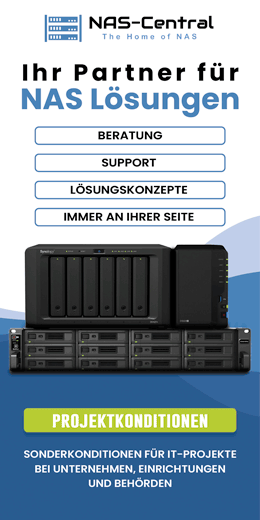- Mitglied seit
- 19. Aug 2008
- Beiträge
- 18.275
- Punkte für Reaktionen
- 4
- Punkte
- 0
In den letzten Tagen häufen sich die Meldungen über kompromittierte Server, welche mit einem sshd rootkit infiziert sind. Bis heute ist nicht klar wie genau das rootkit überhaupt auf den Server kommt. Da gehen die Vermutungen von CPanel und Plesk, über exim oder ssh direkt bis hin zu race conditions im Kernel. Es ist also alles andere als klar!
Ziemlich klar ist jedoch die "Aufgabe" des rootkits: Passworte von ssh Logins stehlen und via TCP Port 53 an Steuerserver schicken.
Zudem kann das rootkit scheinbar remote Kommandos entgegennehmen.
Der Hersteller von CPanel hat alle seine User, die in den letzten 6 Monaten ein Ticket eröffnet haben, informiert und aufgefordert sofort alle Passworte und Schlüssel zu wechseln. Scheinbar war einer der Server welche vom CPanel-Support verwendet wurden, kompromittiert worden.
Anfangs war nur von RedHat basierten Systemen die Rede, heute ist aber klar, dass auch andere z.B. auch Debian betroffen zu sein scheint. Jeder Admin eines RedHat oder Debian Systems resp jedes System welches mit CPanel läuft sollte unbedingt die Server Libraries prüfen. Scheinbar wird bis jetzt die libkeyutils missbraucht. Ganz verdächtig wären /lib64/libkeyutils.so.1.9 oder /lib/libkeyutils.so.1.9 (64bit-32bit)
Man kann diese Libs mittels den Paketverwaltungen und Hashes verifizieren, NUR wenn das System bereits das rootkit drauf hat wäre es möglich dass dieses den Hash on-the-fly verändern könnte. Weitere Anzeichen für eine Infektion: Traffic auf TCP Port 53 zu IPs welche sich nicht in resolv.conf befinden oder der SSHD welche Shared Memory benutzt (was eigentlich nie der Fall sein sollte). Ersteres kann man mit tcpdump auf dem Gateway prüfen, letzteres leider nur direkt auf dem Server mittels ipcs -mp (da wäre aber wieder das Problem, dass ein bereits infiziertes System diesen Systemaufruf manipulieren könnte). Was auch ein Anzeichen sein kann ist wenn man den ssh traced (mit strace) und dieser beim connect auf unbekannte IPs verbindet resp Verbindungen von unbekannten IPs auftauchen. Um das ganze zu (s)tracen habe ich ein kleines Script geschrieben, das stell ich später mal noch hier rein.
Ich empfehle wirklich jedem Admin eines Servers sich zum Thema schlau zu machen und auch auf dem Laufenden zu bleiben bezüglich neuer Erkenntnisse (v.a. bezüglich des ersten Angriffs). Infos kann man z.B. hier (http://www.webhostingtalk.com/showthread.php?t=1235797) finden oder auch hier http://isc.sans.edu/diary/SSHD+rootkit+in+the+wild/15229
Ziemlich klar ist jedoch die "Aufgabe" des rootkits: Passworte von ssh Logins stehlen und via TCP Port 53 an Steuerserver schicken.
Zudem kann das rootkit scheinbar remote Kommandos entgegennehmen.
Der Hersteller von CPanel hat alle seine User, die in den letzten 6 Monaten ein Ticket eröffnet haben, informiert und aufgefordert sofort alle Passworte und Schlüssel zu wechseln. Scheinbar war einer der Server welche vom CPanel-Support verwendet wurden, kompromittiert worden.
Anfangs war nur von RedHat basierten Systemen die Rede, heute ist aber klar, dass auch andere z.B. auch Debian betroffen zu sein scheint. Jeder Admin eines RedHat oder Debian Systems resp jedes System welches mit CPanel läuft sollte unbedingt die Server Libraries prüfen. Scheinbar wird bis jetzt die libkeyutils missbraucht. Ganz verdächtig wären /lib64/libkeyutils.so.1.9 oder /lib/libkeyutils.so.1.9 (64bit-32bit)
Man kann diese Libs mittels den Paketverwaltungen und Hashes verifizieren, NUR wenn das System bereits das rootkit drauf hat wäre es möglich dass dieses den Hash on-the-fly verändern könnte. Weitere Anzeichen für eine Infektion: Traffic auf TCP Port 53 zu IPs welche sich nicht in resolv.conf befinden oder der SSHD welche Shared Memory benutzt (was eigentlich nie der Fall sein sollte). Ersteres kann man mit tcpdump auf dem Gateway prüfen, letzteres leider nur direkt auf dem Server mittels ipcs -mp (da wäre aber wieder das Problem, dass ein bereits infiziertes System diesen Systemaufruf manipulieren könnte). Was auch ein Anzeichen sein kann ist wenn man den ssh traced (mit strace) und dieser beim connect auf unbekannte IPs verbindet resp Verbindungen von unbekannten IPs auftauchen. Um das ganze zu (s)tracen habe ich ein kleines Script geschrieben, das stell ich später mal noch hier rein.
Ich empfehle wirklich jedem Admin eines Servers sich zum Thema schlau zu machen und auch auf dem Laufenden zu bleiben bezüglich neuer Erkenntnisse (v.a. bezüglich des ersten Angriffs). Infos kann man z.B. hier (http://www.webhostingtalk.com/showthread.php?t=1235797) finden oder auch hier http://isc.sans.edu/diary/SSHD+rootkit+in+the+wild/15229








